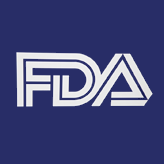FDA Approves Immunotherapy Nivolumab for Kidney Cancer
The FDA has approved the anti–PD-1 immunotherapy nivolumab (Opdivo) for the treatment of metastatic renal cell carcinoma.
Nivolumab has now been approved for the treatment of advanced renal cell carcinoma

The US Food and Drug Administration (FDA) has approved the anti–PD-1 immunotherapy nivolumab (Opdivo) for the treatment of metastatic renal cell carcinoma patients who have progressed on anti-angiogenic therapy.
Nivolumab is part of a class of immune checkpoint inhibitors that block the activation of PD-1-found on the surface of immune cells and tumor cells-producing cell-mediated immune responses against tumor cells.
The approval by the FDA marks the third tumor type for which nivolumab is now approved. The FDA approved the drug in December 2014 for the treatment of metastatic melanoma, and in March of this year for the treatment of metastatic non–small-cell lung cancer in patients who progressed on platinum-based chemotherapy.
“[Nivolumab] provides an important therapy option for patients with renal cell carcinoma,” said Richard Pazdur, MD, director of the Office of Hematology and Oncology Products in the FDA’s Center for Drug Evaluation and Research, in a statement. “It is one of few therapies that have demonstrated the ability to extend patients’ survival in treating this disease.” Temsirolimus, approved in 2007, is the only other FDA-approved therapy that has improved overall survival in clinical trials of renal cell cancer patients.
Nivolumab was approved based on the results of CheckMate025, a phase III, open-label, randomized trial of 821 patients with advanced renal cell carcinoma whose disease had progressed following treatment with an anti-angiogenic drug. Patients were randomized to either nivolumab or everolimus. Patients lived 5.4 months longer when treated with nivolumab (25 months vs 19.6 months; P = .002) and had a 27% lower risk of death compared with patients treated with everolimus. The survival benefit was observed regardless of whether the patient had PD-L1 expression on their tumors. A total of 21.5% of patients treated with nivolumab responded to treatment, with responses lasting an average of 23 months. In the everolimus arm, 3.9% of patients responded, with those lasting an average of 13.7 months (P < .001).
The most common adverse events in patients treated with nivolumab were fatigue (2% of patients), cough, nausea, rash, dyspnea, diarrhea, constipation, decreased appetite, back pain, and arthralgia.
Grade 3/4 treatment-related adverse events occurred in 19% of patients treated with nivolumab and in 37% of patients treated with everolimus.
“[Nivolumab’s] extended indication, from melanoma and non–small-cell lung cancer to renal cell cancer, demonstrates how immune therapies can benefit patients across a wide range of tumors,” Pazdur added.